OBROBNI KONFLIKT IN POČASNI GENOCID
V svetovnih medijih smo v preteklem tednu lahko zasledili dve kratki novički o dogajanju v Baločistanu, provinci na zahodu Pakistana. Zakopani sta bili globoko pod za spektakla navajeno javnost bolj zanimivimi minutnimi posodobitvami o islamističnem napadu na univerzo na severu Kenije in vzburljivi novi vojni v Jemnu. Uporniki v Baločistanu so napadli konvoj z gorivom, namenjen za kitajski rudarski projekt. Dvema aktivistoma za človekove pravice pa je pakistanska oblast prepovedala potovanje v tujino. Klavnica, ki jo imenujemo Pakistan, po desetih letih vojne proti terorizmu res ni več zanimiva za svetovno javnost. A konflikt v Baločistanu, ki traja že vse od nastanka Pakistana, nazadnje pa je vzplamtel v oborožene spopade pred poldrugim desetletjem, bi si vseeno zaslužil nekaj več pozornosti.
Baločistan obsega 40 odstotkov pakistanskega ozemlja na zahodnem delu države, razteza pa se še čez mejo v vzhodnem Iranu in južnem Afganistanu. Tamkajšnji prebivalci, Baluči, se že več kot 60 let borijo proti tej delitvi in za enotnost in samostojnost svojega ozemlja. Pakistan in Iran označujejo za kolonialni državi in v tem pogledu naslednici britanskega imperija. Slednji je v sredini devetnajstega stoletja, ko je zavladal območju, Baločistan razdelil glede na svoje geopolitične interese. Delitev opiše Shahzavar Karimzadi, Baluč in profesor na London Metropolitan University:
So Balochistan was independent nation until the British went, the British empire went to that region. So Balochistan was occupied in 1839 by British empire. Prior to that Balochistan from 1666 was an independent nation. In 1839 when British occupied Balochistan they divided Balochistan in three parts. The first part, it was the line, they drew a line, this line is called - they divided Balochistan to eastern Balochistan and western Balochistan. So the line, almost one third of Balochistan was given to Persia. And this line is known as Goldsmith line. And it was drawn by major general S J Goldsmith, he was a british general. So the western part was given to Persia in 1871 and the eastern part remained under the control of the British empire. But they had an agreement with the British empire, so it wasn’t in a sense like a total colony of the British, but they kind of had some semi-autonomous entity. And then the British also drew another line, it is called Durand line, and the Durand line is the northern line, which divided Pashtun area. So this line is Durand line, it was drawn 1893. The line is about 2350 kilometers and this line, also part of the northern part of Balochistan was given to Afghanistan. So all these two lines, which were drawn by British empire are not recognised by Baluch.
Na podlagi umetnih meja, ki ne upoštevajo etničnih, verskih ali drugih razmejitev, so nastale države Pakistan, Iran in Afganistan. Te države so po osamosvojitvi, ki je takratne meje zakoličila vse do danes, iz kolonialnih časov ohranile etnične elite, ki ne vključujejo manjšin. Kot pojasni Karimzadi, je Pakistan, ki združuje Baluče, Paštune in Pundžabije, ohranil pundžabsko nadvlado, Iran pa nadvlado perzijskih šiitov, čeprav vlada tudi Kurdom, Arabcem, Azerbajdžancem in Balučem:
What Pakistan means or what Iran means. Remember, Iran was created in 1920s. In 1920s it was created because Persian empire was about to collapse, so one fo the rulers of Perisa by the name of Raza Khan, he occupied Kurdistan, Azerbaijan and some part of Arabs, Turkmenistan and in 1927 he occupied again western Balochistan. Iran basically means the land of Aryans. And it was a new term that in 1954 the Persian rulers, they came out with this idea of the land of Aryans because they were influenced by the fascist Germany, the idea of a pure kind of race. So they came out with that idea that all this different nationalities, they forged them in one geopolitical structure, artificial geopolitical structure and they call it Iran. So this was exactly at the same time in 1950s.
But remember Pakistan, the idea of Pakistan as well, came in 1953. There was one Indian Punjabi student in Cambridge, in 1953 he published one kind of a leaflet basically and came out with the idea of separating indian muslim from indian hindus basically. So Pakistan means: Pak is in iranian language tin, means clean, stan means land. That means Pakistan is the land of clean. So the punjabis, that were part of the British establishment, remember from 1870s punjabi muslim or punjabi indian muslim, they were part of the British empire. They, the British empire, used them to surpress the independence movement. So these people, they were part of the British movement, like military basically, the administration, judiciary, all these parts of the political administration to some extent - to large extent - was controlled by punjabi muslim or indian punjabi muslim. After the British left India, because they were part of the same establishment, they wanted to create a state, artificial state to award really their supporters, their staunch supperters, who were the punjabi muslim. What we mean by punjabi, they are Indian, there is no difference between punjabi sikh and punjabi muslim, they are indian, but these were the part of the British empire establishment. And these people they became in charge of Pakistan since the creation of Pakistan. So since creation of Pakistan, the punjabi establishment, the military, the judiciary, the commercial system, all aspects of the establishment were in the hands of these Pakistani punjabi muslim.
Pakistanska pundžabska vojska in policija, ki tudi sicer ne slovita po skrbi za človekove pravice, se v Baločistanu spremenita v klasično kolonialno policijo. Naela Quadri Baloch, predsednica Baloškega ženskega foruma, predstavi postopanje pakistanskih represivnih aparatov v Baločistanu:
So it’s systematic killing. They are killing our intellectuals: doctors, engineers, students, journalists, anybody they think that can raise a voice against their occupation, their killing. Then, it’s bombardment, they are bombing the civilian population, they are bombing, like hundreds and hundreds of villages now, they are just ashes. They come to our houses, the army in uniform, they come, they surround, they kill the people, they kill children, they kill women, they abduct women, they rape women, they abduct the baloch people, they take them with them and then they just steal any valuable thing they see and after that they burn. They burn the homes, they burn the whole villages. They are taking blood and they are selling blood and they are selling organs - heart and lungs and kidneys and eyes - of abducted Baloch. We have found bodies, tortured bodies, but without organs. So now they have stopped throwing the bodies without organs, now they are dumping into mass graves. So it’s systematic killings.
Ugrabljanje baloških aktivistov in intelektualcev, zgolj ena izmed omenjenih represivnih taktik, Baluče drži v stalnem strahu. V preteklem poldrugem desetletju je to taktiko, ki se je je prijelo ime “ubij in zavrži”, na svoji koži izkusilo osemnajst tisoč Balučev. Eden izmed njih je bil zaradi dejavnosti v Baloški študentski organizaciji tudi brat Farzane Majeed Baloch, ki spregovori o boju svoje družine na sodiščih:
We are going to high court, our supreme court, but with our dissapointment, there is nothing. Baloch people have been doing peaceful protests and trialing their loved ones’ cases in legal ways in high court and supreme court, but the intelligence agencies and the military is not ready to listen to anyone. The illegal establishment of Pakistan is not listening and clearing the throwing mutilated dead bodies of missing political activists instead of bringing them in courts for punishment.
Pri zatiranju Balučev torej sodelujejo vse institucije kolonialne države. In ta država se ne omejuje zgolj na konvencionalna sredstva. V devetdesetih letih prejšnjega stoletja je brez posebnih skrbi za varnost okoliških prebivalcev v Baločistanu testirala tudi svoje jedrsko orožje. Naela Quadri Baloch:
And above all the nuclearisation. They used to test chinese nuclear test, it was chinese nuclear test in 1998, May. Pakistan did on Baloch soil, Iran did on Baloch soil and it changed, it like evaporated the whole moisture of our country and 90% of life died, including wildlife, including our cattle. And millions of people had to leave their homes, they had to migrate from their ancestral areas, because there was not a drop of water. They are living like beggars in other areas.
Da otrok, ki se rodijo deformirani, sploh ne omenjamo. Po trditvah sogovornice se v Baločistanu dogaja počasni genocid, ki vključuje vseh osem klasičnih elementov genocida. Ta se začne z vzpostavljanjem razlik, ki tako v primeru Pakistana kot Irana temelji na razlagi vere:
Actually, when we talk about genocide, genocide starts from the classification. Like division of humans into two groups. So they are “us” and we are “them”. So they have divided us, classified us into “them”. And then they dehumanized us. They always impose their culture on us, they always deny our culture. And they are champions of religion, they are champions of a special brand of religion. And actually Pakistan and Iran both are using umbrella of two different sects of religion, but both are trying to impose the sects on two of the divided parts of Balochistan. And they think that we are not as good religious people as they are and they imposed their national, so called state idea on us.
Baluči so sicer sunitski muslimani, a vera v njihovi kulturi ne igra tako velike vloge kot v ostalih delih Pakistana ali Irana. Njihov boj je predvsem nacionalističen in kulturen, ne pa tudi verski. Pakistan, ki je vešč uporabe vere kot orožja za dosego političnih ciljev, v Baločistanu financira tudi militantne islamistične organizacije. Baloški aktivist in študent politologije na Univerzi v Birkbecku, Jamal Nasir Baloch, poda primer takšnega postopanja pakistanskih oblasti:
In Awaran, I think in october 2013, there was an earthquake. And many people were killed bacause of that disaster. Pakistanis denied international aid. They were, I think Doctors without borders, they were refused. But at the same time, there was an organisation Falah Insaniat and others and all of these are linked to Jamaat-ud-Dawa. And this is a group, linked with Lashkar-e-Taiba, which is banned by the EU, by US and by India, because they were involved in a terrorist attack, I think in Mombay. And they are linked with the Pakistani ISI and military. But these groups were allowed in Balochistan and they went there with their local leaders and they distributed aid and goods to the people of Awaran, just to show that islamic organisations care about “you people”. And this was kind of one state-backed tactic to undermine the Baloch democratic movement and spread fundamentalism in our region.
Tako vera poleg že omenjenih vzpostavljanj razlik in dehumanizacije v konfliktu igra še dve vlogi. Po eni strani gre za poskus kulturne kolonizacije preko povečanja vloge islama v baloški družbi, kar se začne pri šolstvu. Opiše Farzana Majeed:
The state of education system of rural areas of Balochistan is totally destroyed. There are only madrassas, where children are only studying religious books. In cities there are some government schools, some parents of children compel to send their children for sake of education from far areas. But in government schools there is no western education systems, there is no facilities, from where students can easily get education. If some private schools are providing education, like western schools, those private schools are recieving threats from extremists, religious people, who are goons of intelligence services. Panjiguri school is one example, which they have closed during the year, because of religious extremists’ threats.
Po drugi strani pa prisotnost militantnega islama v očeh svetovne javnosti upravičuje mnogo širši nabor sredstev v boju proti Balučem.
Najhujši udarec versko-kulturne kolonizacije so doživele ženske. Te imajo tradicionalno v baloški družbi, čeprav patriarhalni, več svobode kot v ekstremnejši verziji islama, ki jo vsiljujejo pakistanske oblasti. To je tudi eden izmed razlogov, zaradi katerega ženske v osvobodilnem boju igrajo pomembno vlogo. Naela Quadri Baloch, predsednica Baloškega ženskega foruma, opiše boj baloških žensk:
It’s threatening by pakistani army people that “you should wear burka, you should cover your face, why you people are going without”. Like we traditionally, Baloch people, we don’t wear burkhas, we don’t cover our faces, but it’s an opression from the state.
But our struggle, it’s not only against occupation. Baloch womens’ struggle is multidimensional. Like we have to struggle against the patriarchal traditions, patriarchal behaviours also, they exist in the society, in the Baloch society also. And our people, the Baloch people, are with us, but the occupier states are trying to keep us contained in our homes. They want to control us, because they know that baloch women are leading the freedom struggle. You know todays’ freedom movement, this is like last 12 years, this freedom movement, this is the most powerful, the most organized one and women, Baloch women, are in leading roles. Baloch women are leading the organisations, Baloch women are leading the decision-making institutions, Baloch women are leading the protests, the public rallies, Baloch women are very active. And it’s not only some educated women, all women, all women. So role of women is very active in present movement.
Ena izmed manifestacij pomembne vloge žensk je bil tudi lanskoletni več kot 2000-kilometrski pohod iz baloškega glavnega mesta Quetta preko Karačija do Islamabada, s katerim so Baluči želeli opozoriti na kršitve človekovih pravic. Na čelu pohoda so bile ženske, med njimi tudi Farzana Majeed:
When we reached to Karachi, the people of Karachi - and from Karachi to Islamabad, we went Karachi to Islamabad - they recieved us with warm receptions. But when we are passing from Punjab way, we face so much problems, like weapons from Punjab police and army, threats from intelligence services and we also faced vehicle attacks. But we did not stop and without fear we reached to our destination.
Komad: Bolan Tara Azad Kana
Poslušali smo baloški osvobodilni komad Bolán Tara Azad Kana, v prevodu “Bolán, osvobodil te bom”. Pesem napoveduje osvoboditev gorovja Bolán na vzhodu Baločistana, ki predstavlja zadnjo večjo geografsko oviro med ravnicami ob reki Ind in baloškim glavnim mestom Quetto. Nadaljujemo torej z Južno hemisfero o Balučih, ljudstvu, ki se na zahodu Pakistana in vzhodu Irana že desetletja bori za samostojnost izpod teh kolonialnih držav. Baloški boj temelji na nacionalizmu in želji po samostojni državi. Ideološko izvira iz socialistično usmerjene Baloške študentske organizacije, krajše BSO. Ta kljub notranjim težavam, s katerimi se sooča, še vedno igra pomembno vlogo v narodnoosvobodilnem boju. Pojasni Farzana Majeed Baloch:
In every struggle the students are backbone of revolutions. And that’s why when the state attacked, when the easterners attacked, the occupied areas, they start from the students, because the students are backbone of revolutions. In Baloch struggle BSO payed a large scale of sacrifice, many students, even leadership of the BSO are sacrificing their lives for Baloch struggle. Even leadership of BSO is still missing and bearing torture in Pakistani detention centres. And our BSO is also banned by state, has no permission by state for peaceful protest for their basic rights. Despite of threats our Balochi students are struggling for their national rights.
Kljub progresivnim temeljem danes baloški upor ideološko ni poenoten. Zaenkrat to ne predstavlja težav, saj vse veje združuje odločnost, da si priborijo svojo državo in nepriznavanje pakistanske države ter njenih institucij. Tisti, ki se zavzemajo zgolj za večjo avtonomijo znotraj Pakistana in delovanje preko vzpostavljenih institucij, med baloškim prebivalstvom ne najdejo podpore. Baloška nacionalna stranka, ki sledi takšnim ciljem, ima celo v provincialnem parlamentu le dva sedeža, večino pa obvladuje največja stranka v državi, Pakistanska muslimanska liga. Jamal Nasir Baloch pojasni, da je to posledica bojkota volitev s strani večine Balučev:
Like those who believe in Pakistani federation and Pakistani system are those who want their own benefit. They are not representing the local population of Balochistan, they are not supported by the people of Balochistan. And in the last election, in the last Pakistani general election, there were some MPs, members of parliament, who just got 165 votes. So this is the level of support. If a person is going to represent you in the national parliament and he is just getting 165 votes, than it means people are not supporting such kind of undemocratic system and they want their freedom back.
Balochistan was a free country, it was occupied by Pakistan and it was Pakistan who made current political structure, which is based on the principle of expliotation and occupation. Therefore I believe there cannot be more autonomy, or let’s say devolution of power in such cases. It could be either independence or either political slavery.
Namesto legitimacije kolonialne oblasti preko volitev, večina Balučev podpira oborožen upor pod vodstvom krovne organizacije Baloška nacionalna fronta. Farzana Majeed:
75 to 80% of Baloch respect the armed insurgents in Balochistan, because every Baloch knows now, that without resistance there is no way of defending of baloch rights.
Zadnji oboroženi upor traja od leta 2000. Poleg vojaške okupacije in kulturnega zatiranja je eden izmed glavnih vzrokov za zadnji izbruh vojne pakistansko izkoriščanje naravnih danosti Baločistana. Območje je bogato z zemeljskim plinom, bakrom, zlatom, železom in drugimi surovinami. Dobiček, kolikor ga ostane v državi, seveda roma v Islamabad. Baluči pa se morajo sprijazniti z življenjskim standardom, ki je nekajkrat nižji od pakistanskega povprečja. Pojasni Jamal Nasir Baloch:
Balochistan is getting nothing. And in 2009 they made some changes, they said “OK, we will give some more money to the government and to the province of Balochistan” and it was, I think, 9%. Nine percent. And there was one case as well. There is one goldmine in Balochistan called Reko Diq. It was exploited by Chinese and Pakistanis. Chinese got 50% of gold which was exploited and the profit of that gold. 50% went to China; 48% went to Punjab, to Pakistani federation, and they were saying we are only getting 2% for the regional government of Balochistan.
And the state of development of Balochistan is that from 100 000 women in Balochistan, during the pregnancy 785 die. But in the rest of Pakistan it is different. In the rest of Pakistan it is 272, the figure. So we even haven’t got hospitals for women, we haven’t got education, schools in Balochistan. Our people are living in… If you would visit Balochistan and if you would see that region with your eyes, you would not believe that the people there are living in 19. or 18. century. They haven’t got water, they haven’t got even basic utilities like electricity, like education, like communication system. They’ve got nothing. Pakistan and their partners are just exploiting their resources and they are just saying that we haven’t got much population.
Najbolj dejavni v rudarjenju na tem območju so Kitajci. Poleg zaslužka in surovin pa ima ozemlje Baločistana za Kitajsko tudi z geografskega stališča veliko geopolitično pomembnost. Azijska sila je na baloški obali ob Arabskem morju zgradila pristanišče v Gwadarju, za katerega so si zamislili več vlog. Po eni strani bo to trgovsko pristanišče v bližini Perzijskega zaliva in na poti proti Evropi preko pakistanskega ozemlja neposredno povezano s kitajsko provinco Xinjiang. Z gradnjo takšnih pristanišč, podobna gradijo tudi v Bangladešu in Mjanmaru, se želi Kitajska osvoboditi odvisnosti od Malaške ožine in razviti alternativno mrežo za uvoz in izvoz blaga. Po drugi strani pa bodo nekatera izmed teh pristanišč, vsekakor tudi Gwadar, služila kot vojaške postojanke, ki bodo Kitajski omogočali prisotnost v Indijskem oceanu, nadzor nad plovnimi potmi in možnost omejitve širitve Indije.
Kitajska zato za nobeno ceno ne želi izgubiti vpliva v Pakistanu in prostega dostopa do baloške obale. S temi cilji v mislih je Kitajska ena najmočnejših zaveznic pakistanske vojske in ji dobavlja vse, od pušk in raket do letal in podmornic. Izkoriščanje surovin in zavezništvo z okupatorsko vojsko je Baluče naredilo zaprisežene sovražnike Kitajske.
Seveda isti okupatorski vojski pomoč nudi tudi Zahod pod vodstvom Združenih držav Amerike. Indija pa je v iranskem delu Baločistana prav tako zgradila pristanišče v Čabaharju, preko katerega trguje s srednjo Azijo. A iz pogovorov z baloškimi aktivisti, ki niso del iste organizacije, je razvidno, da vpletenosti zahodnih, liberalno-demokratičnih držav ne nasprotujejo v isti meri kot vpletanju Kitajske. Zahod zaenkrat konflikt v Baločistanu zgolj opazuje. A z nezadržno rastjo kitajskega vpliva utegne indijsko-severnoatlantsko zavezništvo iskati nove zaveznike. Kot dodaten sladkorček za nekatere članice tega zavezništva lahko podpora Balučem pomaga destabilizirati tudi Iran.
Morda pa bo v prihodnjih letih tudi konflikt v Baločistanu postal bolj zanimiv za svetovno javnost in bomo z minutnimi posodobitvami lahko spremljali obleganje Gwadarja?

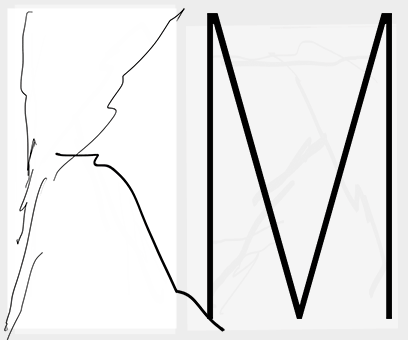
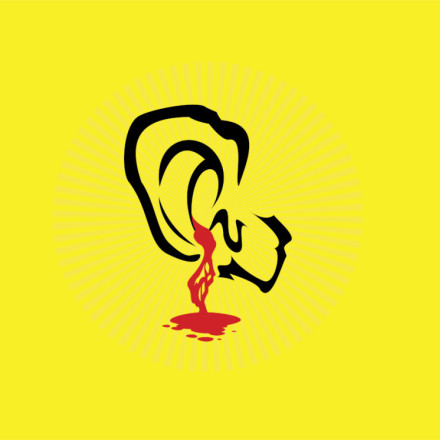
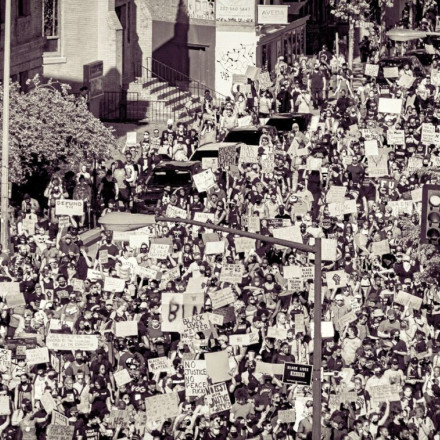


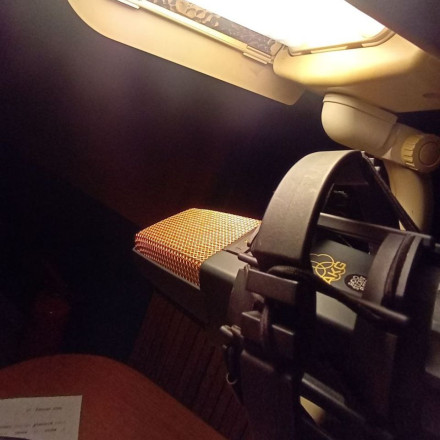
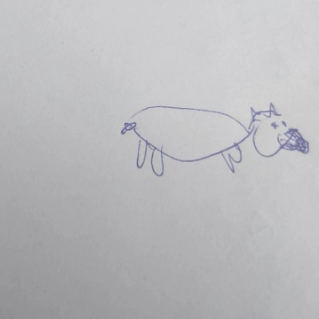
Dodaj komentar
Komentiraj